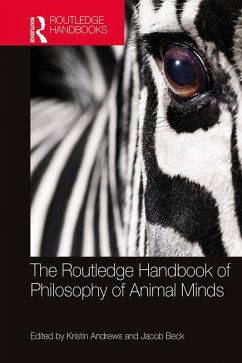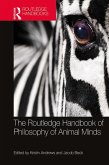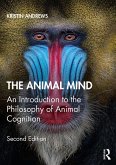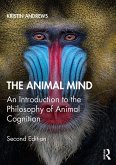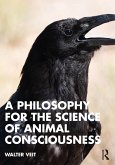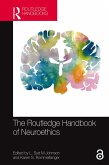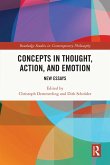- Mental representation
- Reasoning and metacognition
- Consciousness
- Mindreading
- Communication
- Social cognition and culture
- Association, simplicity, and modeling
- Ethics.
Within these sections, central issues, debates, and problems are examined, including: whether and how animals represent and reason about the world; how animal cognition differs from human cognition; whether animals are conscious; whether animals represent their own mental states or those of others; how animals communicate; the extent to which animals have cultures; how to choose among competing models and explanations of animal behavior; and whether animals are moral agents and/or moral patients.
The Routledge Handbook of Philosophy of Animal Minds is essential reading for students and researchers in philosophy of mind, philosophy of psychology, ethics, and related disciplines such as ethology, biology, psychology, linguistics, and anthropology.
Dieser Download kann aus rechtlichen Gründen nur mit Rechnungsadresse in A, B, BG, CY, CZ, D, DK, EW, E, FIN, F, GR, HR, H, IRL, I, LT, L, LR, M, NL, PL, P, R, S, SLO, SK ausgeliefert werden.
"This is exciting stuff! A new field of philosophy has come of age and this broad ranging volume has assembled an all-star collection of authors. For anyone interested in animals and their mental life, it will be the go-to volume for the next decade." - Stephen Stich, Rutgers University, USA
"What is it like to be a non-human being? In penetrating, sometimes entertaining chapters, numerous authors summarize the many approaches to the many parts of the answer to that question. This is a thorough overview of the immense span of human thinking about the capacity of non-human beings to experience life. It is a great resource for students, teachers, researchers, and writers interested in the topic." - Carl Safina, Stony Brook University, USA; author of Beyond Words: What Animals Think and Feel
"This is exciting stuff! A new field of philosophy has come of age and this broad ranging volume has assembled an all-star collection of authors. For anyone interested in animals and their mental life, it will be the go-to volume for the next decade." - Stephen Stich, Rutgers University, USA
"What is it like to be a non-human being? In penetrating, sometimes entertaining chapters, numerous authors summarize the many approaches to the many parts of the answer to that question. This is a thorough overview of the immense span of human thinking about the capacity of non-human beings to experience life. It is a great resource for students, teachers, researchers, and writers interested in the topic." - Carl Safina, Stony Brook University, USA; author of Beyond Words: What Animals Think and Feel

